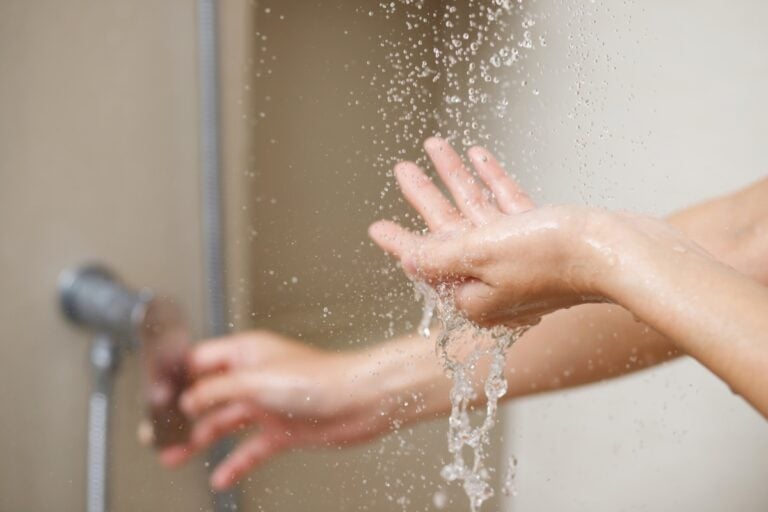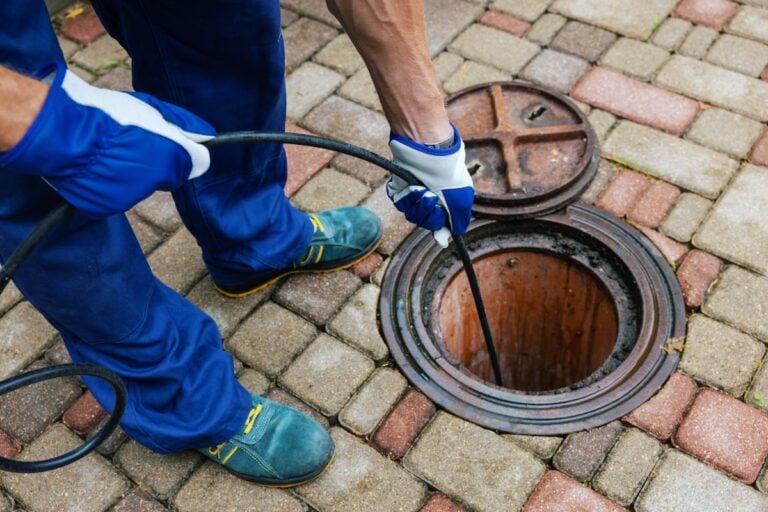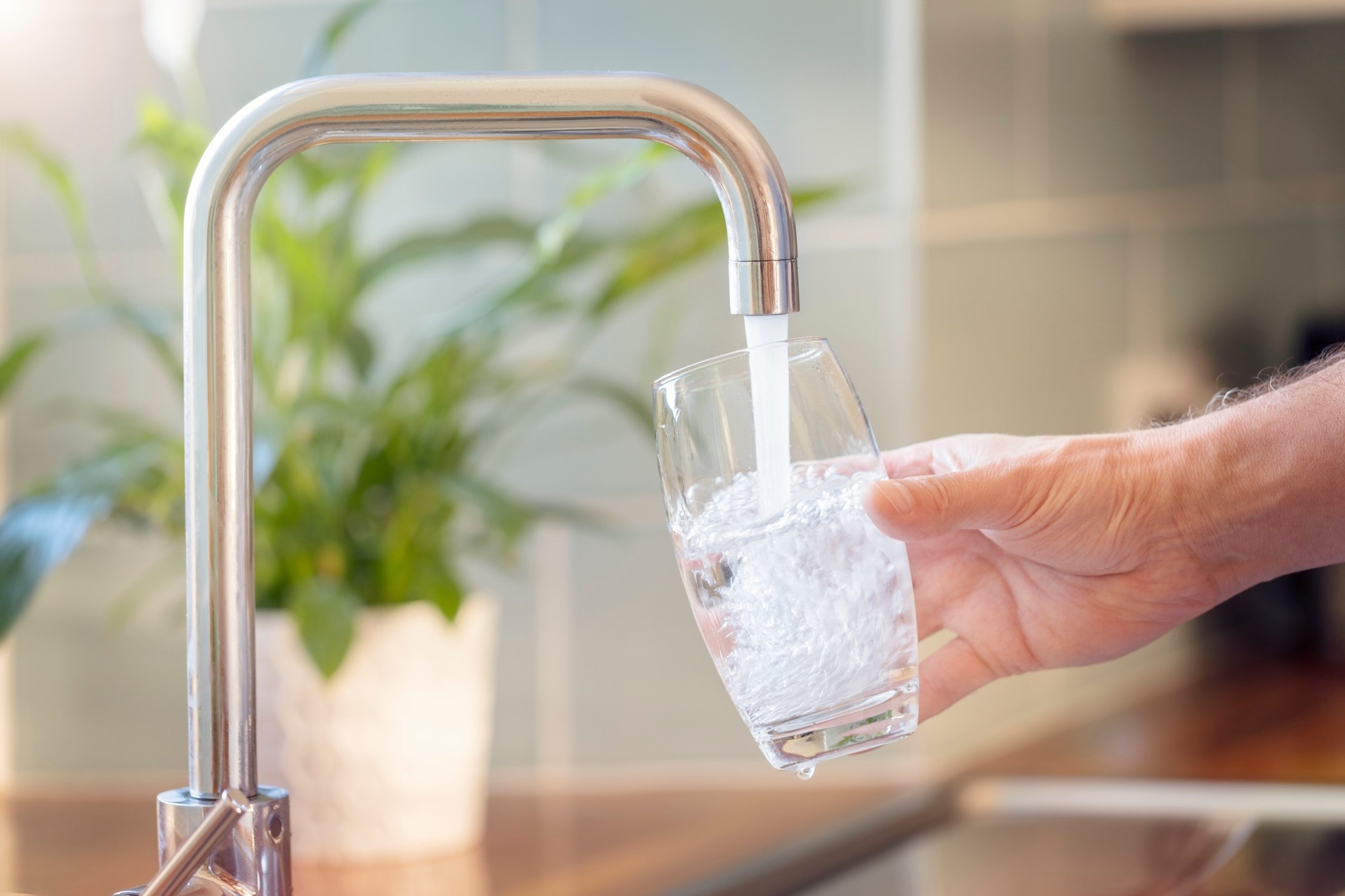
If you’ve been exploring water softening solutions for your home, you’ve probably come across the term “salt free water softener.” With traditional water softeners being salt-based, it’s natural to wonder how salt-free alternatives stack up. Are these systems better for your household, or do they come with tradeoffs?
This guide dives deep into the pros and cons of salt-free water softeners, helping you determine whether they are the right choice for your home. Here’s what we’ll cover:
- How salt free water softeners work
- Benefits of a salt free water softener
- Limitations of a salt free water softener
🤔 What Is a Salt-Free Water Softener?
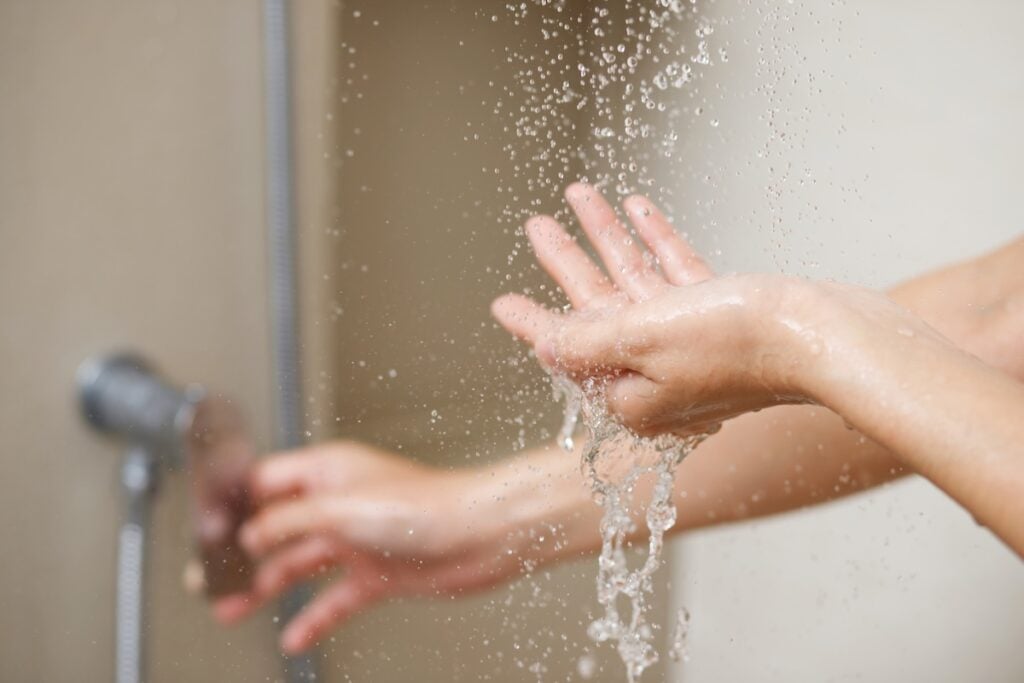
A salt-free water softener, often referred to as a water conditioner, is a system that addresses hard water issues without using salt. Unlike traditional water softeners that remove minerals like calcium and magnesium from your water, salt-free systems work differently. They rely on a process called Template Assisted Crystallization (TAC) to neutralize hardness-causing minerals rather than removing them. This process changes the structure of the minerals, preventing them from sticking to surfaces and causing scale buildup in pipes, faucets, and appliances. Essentially, salt-free systems condition your water rather than truly softening it.
How It Works:
- Template Assisted Crystallization (TAC): Changes calcium and magnesium into stable crystals that won’t stick to surfaces.
- No Sodium Exchange: Unlike traditional softeners, salt-free systems don’t add sodium, ideal for low-sodium diets.
- Healthier and Efficient: Provides a salt-free and eco-friendly solution for reducing hard water effects.
⭐️ 6 Benefits of a Salt Free Water Softener
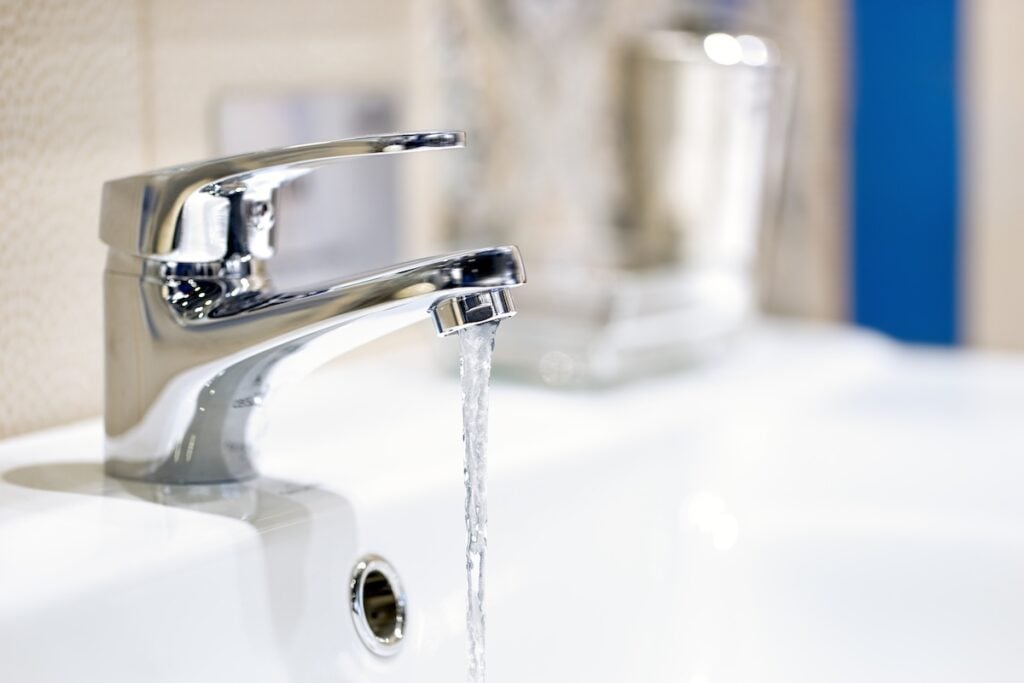
Installing a salt free water softener comes with several advantages. Here are the top reasons why homeowners opt for this plumbing solution.
1. Environmentally Friendly
Salt-free water softening systems are a sustainable choice because they do not release brine (salty wastewater) into the environment. Traditional salt-based softeners discharge this brine during the regeneration process, which can harm aquatic ecosystems and pollute local water sources. Salt-free systems, on the other hand, avoid this entirely, making them a great option for environmentally conscious homeowners. This is especially beneficial in areas with water treatment regulations that limit the use of salt-based systems, ensuring you stay compliant while reducing your environmental footprint.
2. Low Maintenance
With salt-free systems, you can say goodbye to the hassle of lugging around heavy bags of salt or regularly refilling a brine tank. Unlike traditional water softeners that require frequent maintenance, salt-free systems are designed for simplicity. Once installed, these units generally operate smoothly with little to no upkeep. They don’t require regular monitoring or complicated care routines, giving you more time to focus on other tasks. This makes them a convenient, low-effort solution for busy households or those who prefer a hands-off approach.
3. Retains Healthy Minerals
Salt-free water conditioners treat water without removing beneficial minerals like magnesium and calcium. While these minerals are responsible for hard water deposits or scaling, they are also vital for maintaining a healthy diet. Traditional systems strip water of these nutrients, but salt-free options leave them intact while preventing them from forming hard deposits on pipes and appliances. This way, you enjoy the best of both worlds – water that’s gentle on your plumbing and appliances, while still providing essential minerals for your body.
4. Works Without Electricity
Salt-free systems don’t rely on electricity to function, setting them apart from traditional softeners that require power to regenerate. By operating without electricity, these systems not only cut down on energy costs but also ensure uninterrupted functionality during power outages. This can be especially useful in areas prone to blackouts or for those looking to lower their overall energy consumption. The energy-free design also makes salt-free systems a reliable and cost-effective option for anyone wanting a more self-sufficient water treatment solution.
5. Compact and Space-Saving
Salt-free water softeners are designed with modern living in mind. Unlike bulky salt-based systems that often require large tanks and additional components, salt-free systems are compact and easy to install. Their streamlined design allows them to fit into tight spaces like utility closets, under sinks, or small laundry rooms, making them ideal for apartments, condos, and homes with limited storage areas. This compact design not only saves space but also makes these systems more visually appealing and less obtrusive in your home.
6. No Salt Taste or Sodium Added
One of the biggest drawbacks of salt-based systems is the potential for adding sodium to your water, which can alter its taste and may not be suitable for those on low-sodium diets. Salt-free systems solve this problem by conditioning water without adding any sodium. This ensures your drinking water remains pure, neutral in taste, and better for your health. Whether you’re drinking it straight from the tap or using it for cooking, you’ll appreciate water that’s clean, natural, and free of any salty aftertaste.
❗️ Limitations of a Salt Free Water Softener
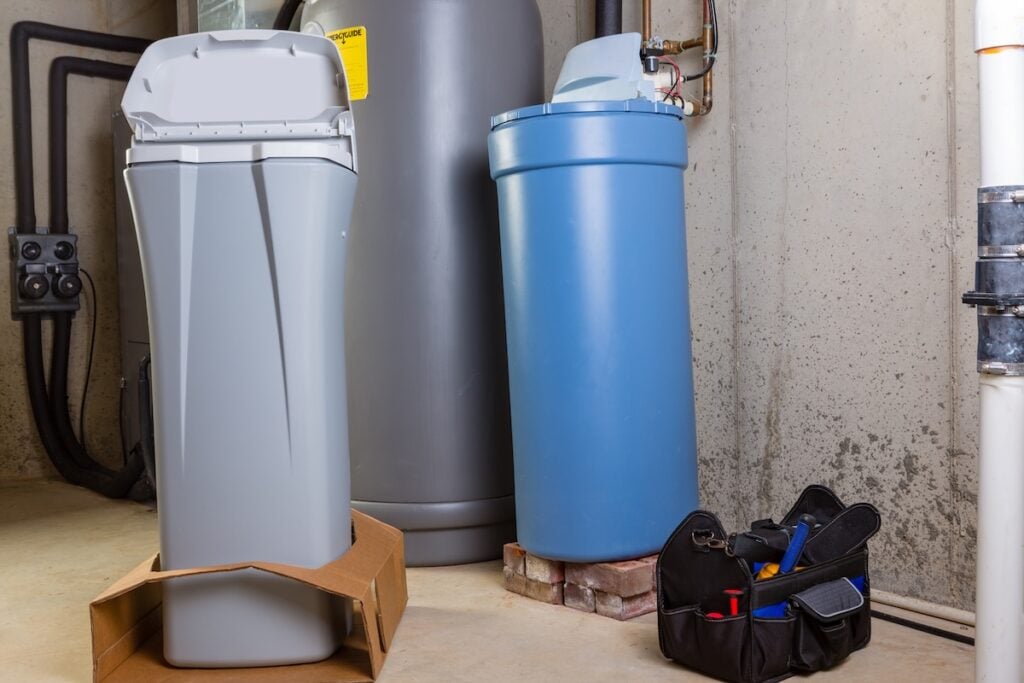
While salt-free water softeners come with several benefits, they aren’t without their limitations. Understanding these drawbacks can help you decide whether they’re compatible with your needs.
1. Doesn’t Remove Hardness Minerals
Unlike traditional water softeners that remove hardness-causing minerals like calcium and magnesium through an ion exchange process, salt-free systems work differently. They neutralize these minerals instead of eliminating them. This process, known as template-assisted crystallization (TAC), changes the structure of the minerals so they are less likely to form scale. However, the minerals remain in the water, meaning the water isn’t technically “soft.” As a result, you might notice a difference in how the water feels, particularly during cleaning or bathing. For instance, it may not feel as silky or smooth as water treated with a traditional softener.
2. Not Effective for Extreme Hard Water
Salt-free systems are generally effective for conditioning moderately hard water, but they may struggle in situations where water hardness levels are exceptionally high. In cases of extreme hardness, these systems may not be able to prevent significant scaling on pipes, fixtures, or appliances. Traditional salt-based water softeners are better equipped to handle such conditions because they physically remove the hardness minerals from the water. If you live in an area with very hard water, a salt-free system may not provide the level of protection you need, and scaling could still occur over time.
3. No Soap Lather Improvement
One of the most appreciated benefits of traditional water softeners is the improvement in soap lathering. When hardness minerals are removed from the water, soap and detergents can lather and clean more effectively, resulting in softer skin, shinier hair, and cleaner laundry. With salt-free systems, since the hardness minerals are still present, there’s no noticeable improvement in soap performance. You may find that you still need to use the same amount of soap or detergent as you did before installing the system, which might be a drawback if you were hoping for this specific benefit.
4. Initial Costs May Be Higher
Salt-free water softeners often come with a higher upfront price tag compared to traditional salt-based systems. This is primarily due to the advanced technology used for conditioning water without the need for chemicals like salt. While the initial investment can seem steep, it’s important to consider the long-term savings. Salt-free systems require little to no ongoing maintenance, and you won’t need to purchase bags of salt or pay for regular refills. Over time, these savings can help offset the higher upfront costs, making a salt-free system a worthwhile investment for some households.
5. Limited Household Applications
Salt-free water softeners are effective for many general household uses, such as reducing scale buildup in pipes and improving the lifespan of water-using appliances. However, they may not be suitable for all applications. For instance, certain appliances, like dishwashers and washing machines, often require completely softened water to function optimally and avoid residue or spotting. In these cases, a salt-free system might not deliver the desired results. If you rely heavily on appliances that require true softened water, you may need to weigh the benefits and limitations of a salt-free system carefully.
💧 Salt-Free Softener
Choosing the right water softener can make a huge difference in the quality of your water and the efficiency of your home. At Thelen Mechanical, we bring years of expertise and a commitment to customer satisfaction to every project. Our skilled team is here to guide you through the process, ensuring you find the perfect salt-free water softener tailored to your needs.
If you’re ready to upgrade your home’s water system, contact Thelen Mechanical today for expert advice and reliable installation services. Let us help you enjoy the benefits of better water—schedule your consultation now!
Unlock Our Limited-Time Deals!
Take advantage of our offers on AC tune-ups, new installs, repairs, and more.
We Can’t Wait to Help Your Home!
"*" indicates required fields



